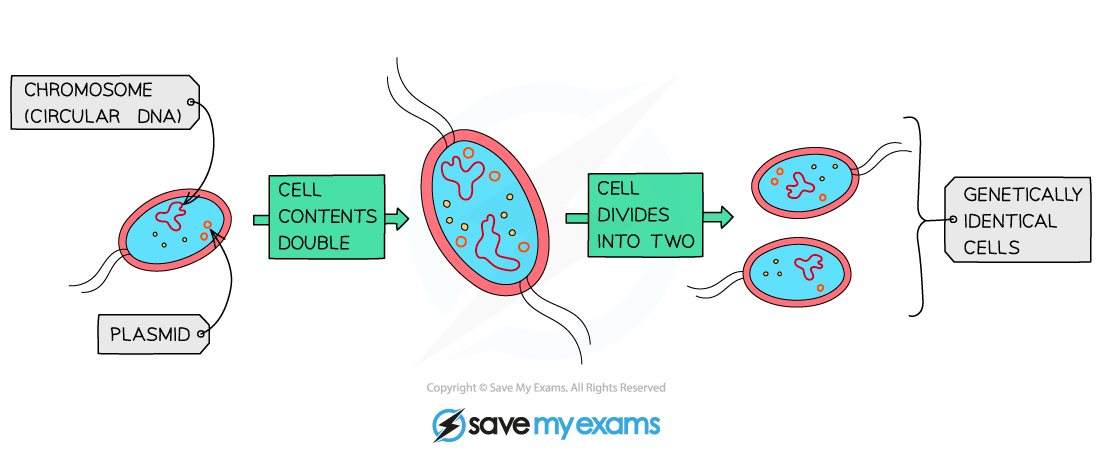- 翰林提供学术活动、国际课程、科研项目一站式留学背景提升服务!
- 400 888 0080
AQA A Level Biology复习笔记2.3.8 Binary Fission DOWNLOAD PDF
Binary Fission of Prokaryotic Cells
- The process of cell division (binary fission) in prokaryotic cells is much simpler than mitosis in eukaryotic cells
- Prokaryotic cells do not possess:
- A nucleus
- Chromosomes
- Membrane-bound organelles
- Spindle fibres
- They have a single, circular DNA molecule and plasmids
- Plasmids are smaller, circular DNA molecules that are also replicated and inherited
- The number of copies of plasmids that each cell inherits can vary, although this number is regulated
The process of binary fission
- Binary fission is substantially different from mitosis as there is no nuclear envelope to breakdown and there are no spindle fibres present
- The process:
- The single, circular DNA molecule undergoes DNA replication
- Any plasmids present undergo DNA replication
- The parent cell divides into two cells, with the cytoplasm roughly halved between the two daughter cells
- The two daughter cells each contain a single copy of the circular DNA molecule and a variable number of plasmids
- There are mechanisms to ensure that all daughter cells inherit a copy of the single, circular DNA molecule along with some plasmids
- If a daughter cell does not receive the single circular DNA molecule or at least one copy of a plasmid they die

The process of binary fission producing genetically identical daughter cells
转载自savemyexams
站内搜索
竞赛真题免费下载(点击下载)
在线登记
最新发布
© 2024. All Rights Reserved. 沪ICP备2023009024号-1





